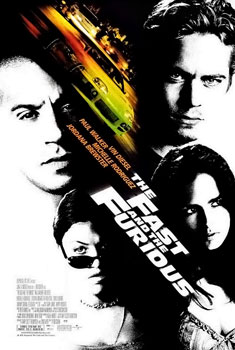And Now, a Flagrant Disregard for Morals and Decency
Old movies have a reputation for being kid friendly, no matter what they're about. They don't have any nudity, bad language, or disrespect for authority figures. This is largely because of the Motion Picture Production Code (or Hays Code), a "voluntary" set of rules the Hollywood studios agreed to abide by, so as not to upset the delicate sensibilities of upstanding American citizens. From the mid 1930s to the 1960s, almost every movie released in the U.S. had to have code approval.[ref]This doesn't mean that everything that's old and in black and white is okay for all ages. Before the Code, you could find many of the things it disapproved of in major Hollywood releases, including women of loose character and criminals who are not punished for their crimes. Unfortunately, if you want to get your rocks off to silent, scratched up smut from the 1920s, you're out of luck: most of the films from this period have been lost to history.[/ref]
But as with all censorship guidelines suggestion systems, people would try to find a way to get around the rules. Sex and violence sell movie tickets, and if that's what people really wanted, Hollywood was more than happy to provide it.
 Enter The Lady Eve, a screwball comedy from 1941. Barbara Stanwyck and her card shark father, Charles Coburn, endeavor to swindle rich beer magnate Henry Fonda out of his family fortune. Hijinks, hilarity, and unintentional romances ensue.
Enter The Lady Eve, a screwball comedy from 1941. Barbara Stanwyck and her card shark father, Charles Coburn, endeavor to swindle rich beer magnate Henry Fonda out of his family fortune. Hijinks, hilarity, and unintentional romances ensue.
The film is not especially subtle about what's going on– only someone who has no idea how adult relationships work could miss it, and then they probably wouldn't enjoy the movie much.
Yet the film always wants to have a plausible deniability. We don't see Barbara and Henry sleep together, but one night they're kissing, and the next shot is the bow of the cruise ship plowing through the ocean. So... you know.
I was interested to learn from Matthew H. Bernstein via David Bordwell that Joseph Breen of the Production Code Administration worked with director Preston Sturges and the producers of The Lady Eve to allow some racy material into the film– just nothing too racy. The PCA knew that if audiences didn't feel like they were getting a little red meat, they'd go looking elsewhere, and the Code would be unenforceable.
This is ultimately what happened, when in the late 1950s and 1960s European films not made in accordance with the Code were released in the U.S. Among them were things like Vittorio De Sica's raunchy, decadent farce The Bicycle Thieves.[ref]It's about a poor Italian man struggling to provide for his family in bombed out post-war Italy.[/ref] They made a lot of money, but Hollywood wasn't able to follow suit.
To take advantage of changing tastes, the Code was replaced with the movie rating system, which, after some revision, is what we have now. Hollywood is free to make movies with sex, violence, and crime– and they'll tell you ahead of time so you can be an informed consumer.
Among these movies is The Fast and The Furious franchise, which I sampled this summer,  on the recommendation of a friend. What struck me most, especially in the early entries, is that these movies openly endorse criminal activity.
on the recommendation of a friend. What struck me most, especially in the early entries, is that these movies openly endorse criminal activity.
Paul Walker starts out as a cop, infiltrating a street racing gang to find a band of car thieves. When he discovers that his friends are actually the ones stealing the cars, he doesn't just help them escape the Law, he joins them.
I know Vin Diesel is cool, but really?
The Code, of course, would have had none of this. Crime must never go unpunished. Criminals may look cool, but they always get what they deserve in the end.
Except here. I suppose there are worse things one could steal than high performance luxury cars. Sometimes Walker and Diesel steal from vicious drug lords, so we don't feel that bad. But still, the take away seems to be that if you can steal cool cars and look good doing it, you can get away with anything.
